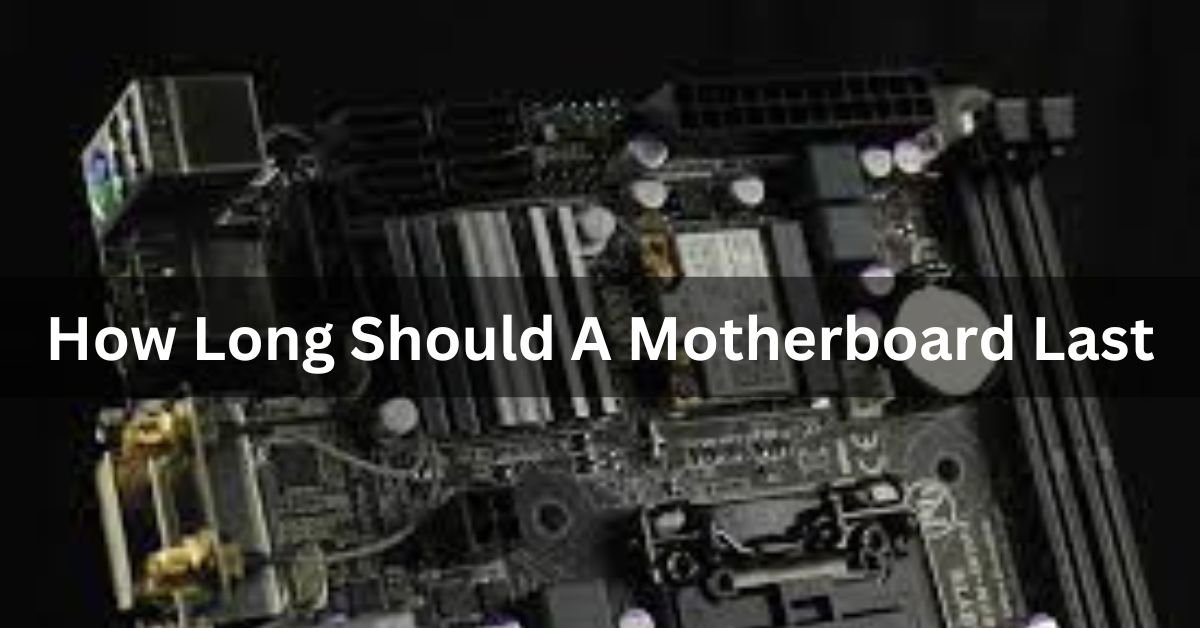Motherboards are the backbone of any computer system, serving as the central hub where all hardware components interact and communicate. Like any other electronic device, motherboards have a finite lifespan, but determining exactly how long they should last can be a complex issue influenced by various factors.
A motherboard can last anywhere from 5 to 10 years or more, depending on usage, quality, and maintenance. Regular cleaning, proper handling, and avoiding overheating can help prolong its lifespan.
In this article, we will discuss “How Long Should A Motherboard Last ”.
Introduction to Motherboards:
A motherboard is a printed circuit board that houses essential components such as the CPU, RAM, storage drives, and expansion cards. It provides connectivity and power distribution to these components, allowing them to function together seamlessly.
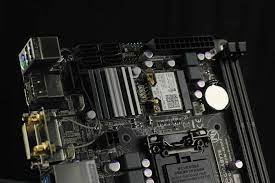
The Lifespan of Motherboards: How long can you expect them to last?
Motherboards can last 5 to 10 years or more with proper care. Factors like usage, environment, and maintenance affect lifespan. Regular cleaning, stable power supply, and avoiding extreme temperatures can extend motherboard life.
Signs and Symptoms: If your Motherboard is dying?
Signs of a failing motherboard include system crashes, frequent blue screens, random reboots, USB ports not working, and failure to power on. These symptoms indicate potential issues with the motherboard’s hardware.
Science Behind Motherboards LifeSpan:
The lifespan of motherboards is influenced by scientific principles such as thermal expansion, electrical resistance, and material fatigue. Factors like heat, electrical stress, and component quality determine their durability over time.
Read: Do You Plug Your Monitor Into Graphics Card Or Motherboard – Ultimate Guide!
Do Motherboards Really Have A Shelf Life?’
Yes, motherboards can degrade over time due to various factors like heat, electrical stress, and component wear. While they don’t have a fixed shelf life, their longevity depends on usage and care.
Read: If Motherboard Is Damaged In Laptop Can I Recover Data – Complete Guide!
Factors Affecting the Life of a Motherboard:
Several factors influence a motherboard’s lifespan. These include temperature fluctuations, electrical surges, dust accumulation, component quality, and the frequency of usage and maintenance practices over time.
Read: What Is T Sensor On Motherboard – Complete Guide – 2024
How to Extend the Life of Your Motherboard? Tips and Tricks to Extend its Life?
Here are some tips and tricks to help you achieve that:
1. Proper Cooling: Ensure that your computer’s cooling system is adequate. Overheating can damage your motherboard and other components. Clean your computer regularly to prevent dust buildup, and consider adding extra fans or upgrading your CPU cooler if necessary.
2. Stable Power Supply: Invest in a good quality power supply unit (PSU) with stable power output. Fluctuations in the power supply can damage your motherboard over time. Use a surge protector or uninterruptible power supply (UPS) to safeguard against power surges and outages.
3. Gentle Handling: Handle your motherboard with care, especially during installation and maintenance. Avoid dropping or mishandling it, as physical damage can lead to malfunctions or failures.
4. Update BIOS: Regularly update your motherboard’s BIOS (Basic Input/Output System) firmware to ensure compatibility with new hardware and to patch any security vulnerabilities or bugs.
5. Avoid Overclocking: While overclocking can boost performance, it also puts additional stress on your motherboard and other components. Avoid aggressive overclocking, as it can reduce the lifespan of your hardware.
6. Proper Installation: When installing or replacing hardware components (such as RAM, CPU, or expansion cards), follow the manufacturer’s guidelines and ensure compatibility with your motherboard. Improper installation can cause damage or short circuits.
7. Keep Software Updated: Ensure that device drivers, operating system, and other software are up-to-date. Updated software often includes performance optimizations and bug fixes that can improve the stability and reliability of your system.
8. Regular Maintenance: Periodically inspect your motherboard for signs of damage, such as bulging capacitors or burnt components. Clean dust and debris from the motherboard and other internal components using compressed air or a soft brush.
9. Avoid Static Electricity: Static electricity can damage sensitive electronic components, including your motherboard. Use an anti-static wrist strap or mat when handling your motherboard or other internal components, especially in dry environments.
10. Monitor Temperatures: Use monitoring software to keep an eye on your motherboard and CPU temperatures. High temperatures can indicate inadequate cooling or ventilation, which can lead to premature failure.
Read: Can I Use 3200mhz Ram In 2933mhz Motherboard – Complete Guide!
Can you just replace the motherboard?
Yes, you can replace the motherboard. It’s like changing the brain of a computer. You take out the old one and put in a new one to make it work again.
Can I use my old hard drive with a new motherboard?
Yes, you can use your old hard drive with a new motherboard, but you may need to reinstall the operating system and drivers to ensure compatibility and optimal performance.
Read: Is Any Motherboard Compatible With Any Case – Complete Guide – 2024
What happens if the motherboard is replaced?
If the motherboard is replaced, the computer’s central component changes. It can affect compatibility with other parts and may require reinstalling the operating system. Ensure data backup and proper installation procedures.
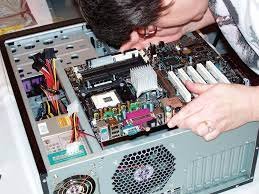
What are the signs of a bad motherboard?
Signs of a bad motherboard include frequent crashes or freezes, system instability, failure to boot, USB ports not working, unusual beeping sounds during startup, and visual artifacts on the screen. These symptoms indicate potential motherboard issues.
How much does a new motherboard cost?
The cost of a new motherboard varies based on brand, features, and compatibility. Generally, they range from $50 to $500 or more, depending on your specific requirements and budget.
Will I lose data if I replace my motherboard?
Replacing your motherboard may not directly cause data loss, but it can lead to compatibility issues with your operating system and drivers. Back up important data before replacing your motherboard to prevent any potential loss.
Which motherboard is the best?
The best motherboard depends on your specific needs, such as compatibility, features, and budget. Research reputable brands like ASUS, Gigabyte, MSI, and ASRock to find one suitable for your requirements.
How to Improve the Life of a Motherboard?
To improve motherboard life, ensure good ventilation, avoid overheating, use a stable power source, keep it clean from dust, handle components gently, and update firmware regularly. Proper maintenance and cautious usage extend its longevity.
Why Do Motherboards Die So Quickly?
Motherboards can die quickly due to various reasons, including power surges, overheating, physical damage, manufacturing defects, and age-related wear. Proper maintenance and handling can help prevent premature failure.
Tips for Prolonging Motherboard Lifespan:
To prolong motherboard lifespan, keep it clean from dust, maintain good airflow and cooling, avoid physical damage, use a stable power supply, install updates and drivers regularly, and handle components gently.
Regular maintenance and cautious usage help ensure optimal performance and longevity of your motherboard.
How Can I Increase My Motherboard’s Lifespan?
To increase your motherboard’s lifespan, keep it clean from dust, maintain proper cooling, avoid physical damage, use quality components, update firmware regularly, and ensure stable power supply conditions. Regular maintenance is crucial.
How Often Should You Replace Your Motherboard?
You generally replace your motherboard when it no longer meets your needs or if it fails. Motherboards can last 5-10 years or longer with proper care and may be replaced for upgraded features or compatibility reasons.
What Is The Lifespan Of Motherboard?
The lifespan of a motherboard typically ranges from 5 to 10 years or more with proper care. Regular maintenance, avoiding extreme temperatures, and gentle handling can help prolong its longevity.
How Do You Know If Your Motherboard Is Dying?
You may notice signs like frequent crashes, unexpected shutdowns, failure to boot, or peripherals not working. Beeping sounds during startup, unusual error messages, or burning smells could also indicate motherboard issues.
How Long Should A Gaming Motherboard Last?
A gaming motherboard should last 5-10 years with proper care. Regular maintenance, good cooling, and avoiding physical damage can help extend its lifespan, ensuring optimal gaming performance over time.
How Long Should A Motherboard Last On A Laptop?
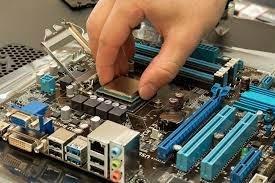
A motherboard in a laptop should last around 3-5 years with proper care. Regular maintenance, avoiding overheating, and gentle handling can help extend its lifespan for reliable laptop performance.
How Long Should A Motherboard Last For Gaming?
A gaming motherboard should last 5-10 years with proper care. Regular maintenance, good cooling, and avoiding physical damage can help extend its lifespan, ensuring optimal gaming performance over time.
Read: Will An Atx Motherboard Fit In An Eatx Case – Ultimate Guide!
How Long Does A Motherboard CMOS Battery Last?
A motherboard CMOS battery typically lasts around 3 to 5 years. It stores BIOS settings and the system clock. When it dies, the computer may lose its time and configuration settings.
Gigabyte Motherboard Lifespan?
The lifespan of a Gigabyte motherboard can range from 5 to 10 years or more, depending on usage and maintenance. Regular care and avoiding extreme conditions can help prolong its longevity.
How Long Do Cpus Last?
Read: Do Motherboards Come With Thermal Paste – Complete Guide!
CPUs can last 5-10 years or more with proper care. Avoiding overheating, regular cleaning, and using quality cooling systems help extend their lifespan, ensuring consistent performance over time.
How Long Does A Motherboard Last?
A motherboard typically lasts 5-10 years with proper care. Regular maintenance, avoiding overheating, and protecting against physical damage can help extend its lifespan for optimal performance.
Read: Can I Use 1866mhz Ram On 1600 Motherboard – Ultimate Guide
How Long Do Gaming Motherboards Last?
Gaming motherboards can last 5-10 years or more with good care. Regular maintenance, proper cooling, and avoiding physical damage help prolong their lifespan, ensuring optimal performance for gaming.
What is the lifespan of a gaming motherboard?
The lifespan of a gaming motherboard varies, but it can typically last 5-10 years with proper care. Regular maintenance, avoiding extreme temperatures, and using quality components can help extend its longevity.
Read: New Motherboard Ethernet Not Working – Ultimate Guide – 2024
How can I repair my smartphone’s motherboard?
Repairing a smartphone’s motherboard requires specialized skills and tools. It’s often best left to professionals. If attempting DIY repairs, ensure safety precautions, follow guides, and handle components delicately.
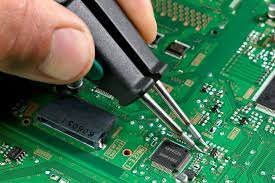
Read: Msi Motherboard Error Codes – Comprehensive Guide of 2024!
FAQs:
1. Why does a motherboard fail?
A motherboard can fail due to various reasons including overheating, electrical surges, physical damage, manufacturing defects, or age-related wear and tear. These factors can cause components to malfunction or stop working altogether.
2. What are the symptoms of a faulty motherboard?
Symptoms of a faulty motherboard include the computer not turning on, frequent crashes or freezes, unexpected shutdowns, USB ports not working, and unusual beeping sounds during startup.
3. What happens when a motherboard short circuits?
When a motherboard short circuits, it can cause the computer to stop working or behave erratically. Components may get damaged, leading to system instability or failure to boot up. Repairs or replacements may be needed.
4. How long can a computer last?
A computer can last 5-10 years or more depending on usage and maintenance. Regular updates, proper cooling, and avoiding physical damage help prolong its life. Upgrades can also extend its lifespan.
5. How long does an average laptop last?
An average laptop lasts about 3-5 years. However, with good maintenance and care, it can extend to 7-10 years. Regular updates, avoiding physical damage, and keeping it clean help prolong its life.
6. What is the lifetime of a PC motherboard?
A PC motherboard typically lasts 5-10 years or more with proper care. Regular maintenance and avoiding extreme conditions can help extend its lifetime.
7. Do motherboards or power supplies last longer, and how long do they last?
Motherboards and power supplies can last a long time if maintained well. Generally, motherboards may last longer due to fewer moving parts. They can endure 5-10 years or more.
8. How long do circuit boards last?
Circuit boards, including motherboards, can last anywhere from 5 to 20 years or more, depending on factors like quality, usage, maintenance, and environmental conditions. Regular care can help prolong their lifespan.
9. Do motherboards wear out?
Yes, motherboards can wear out over time due to factors such as heat, dust, electrical surges, and physical damage. However, with proper care and maintenance, their lifespan can be extended.
10. Do Chinese Xeon motherboards last very long?
The lifespan of Chinese Xeon motherboards varies. Some may last a long time with proper care, while others might have shorter lifespans due to quality or manufacturing issues.
Conclusion:
In conclusion, a motherboard’s lifespan typically ranges from 5 to 10 years with proper care, affected by factors like usage and maintenance. Signs of failure include system crashes and USB port issues. Regular maintenance, gentle handling, and a stable power supply help prolong its life. Upgrades and replacements may be necessary over time.
